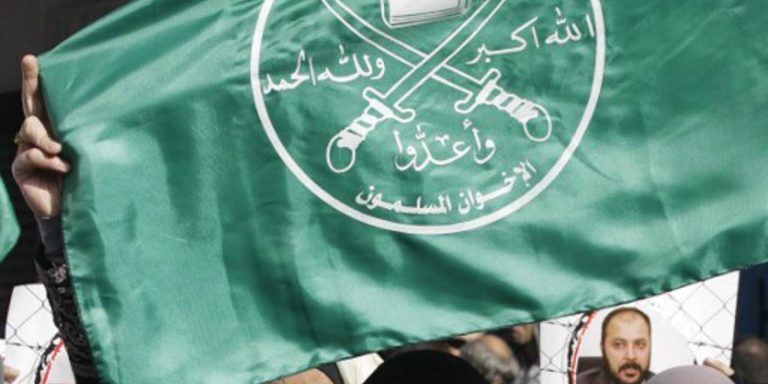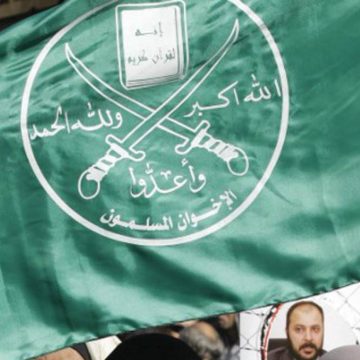Originally published on middleeasteye.net
The repression facing the Brotherhood in Egypt and several Gulf states, together with renewed sanctions against Iran and its allies, could herald an unprecedented political alliance
One of the most interesting unintended consequences of Jamal Khashoggi’s murder last October in the Saudi Arabia consulate in Istanbul has been a clash over the leadership of the Muslim world.
This seems to be one of the motivations behind Turkey’s political use of the affair, through its drip-by-drip leaks that are embarrassing Saudi Arabia’s current rulers. The al-Saud family’s claim to leadership of the Muslim world, built upon the state’s custodianship of the two Holy Mosques of Mecca and Medina, is now in question more than ever before.
Turkish President Recep Tayyip Erdogan’s aspirations towards a leading role in the Muslim world are not new. The support he has extended to the Muslim Brotherhood, alongside Qatar, has fuelled tensions with Saudi Arabia, the UAE and Egypt, which view the Brotherhood as an existential threat. The two camps have supported opposite factions in Libya for years, and Ankara openly sided with Doha in the Saudi-led blockade of Qatar.
Regional power balance
This contest for the leadership of the Muslim world, to which Western chancelleries and media have so far paid little attention, might evolve into something even more traumatic, further shaking the regional power balance: an alliance on the ground between the Muslim Brotherhood and Shia political Islam.
Although in the last seven years these two movements have been on opposite sides of the Syrian battleground, the zero-sum mentality characterising the confrontation between the US, Israel, Egypt, Saudi Arabia and the UAE on one hand, and Iran, Iraq, Syria and Hezbollah on the other, could turn them into allies. The repression that the Brotherhood is enduring in Egypt and other Gulf states, together with renewed sanctions against Iran and its allies, could result in the classic “the enemy of my enemy is my friend” approach.
The Brotherhood-Shia political Islam connection has existed, almost unnoticed, for decades. Among the main translators of Sayyid Qutb’s works to Farsi is Iranian Supreme Leader Ayatollah Ali Khamenei. Since the early 1950s, Qutb was the Brotherhood’s chief theoretician, as well as the main challenger to Egyptian president Gamal Abdel Nasser.
Executed in 1966, Qutb rejected a pardon, saying: “My words will be stronger if they kill me.” His works had a huge influence throughout the Muslim world and political Islam, including in Shia political Islam circles.
One of the most venerated of Shia religious leaders, Ayatollah Muhammad Baqir al-Sadr, founded the Islamic Dawa Party, which included Sunni members. He was executed in 1980 for his opposition to Saddam Hussein’s rule. Qutb’s works also played an important role in the period leading up to the Islamic Revolution in Iran.
Struggle against oppression
Both the Brotherhood and Shia political Islam appear moved by a common sociological view of Islam’s role in society; namely, the struggle for equity and against oppression and injustice. Apart from in Syria, it is undeniable that Iran and its allies are increasingly facing the same foes as the Brotherhood.
They both despise the idea of Western hegemony in the region and its apparent “local agents and stooges,” whether Israel or Arab autocracies; they both see Palestine and Yemen as the most obvious examples of oppression and injustice; and they both believe that the lifestyle and corruption of certain Arab kingdoms insults the equity preached by Islam.
In the last four decades, the Middle East has gone through two geopolitical tectonic shifts: the Iranian revolution in 1979 and the US invasion of Iraq in 2003. Their consequences, intended and unintended, are still with us and will be for a long time. Had it not been brutally crushed, the 2011 Arab Spring could have been another one.
Nothing would be as much of a game-changer, however, as the possible alignment of the Brotherhood and the Shia “resistance” movements; their bond would be sustained by a political drive based on a religious and socially-oriented understanding that could be unprecedented in the region’s recent history.
As Iran and the Brotherhood are increasingly portrayed as existential threats for Arab secular and monarchical autocracies, it is difficult to imagine the threat level that could be aroused by a potential marriage of their interests, translated into concerted political and military action on the ground. Targeting two different enemies at the same time is usually a bad strategic choice.
Dislodging the US
The US and its regional allies, however, have ignored this basic lesson. They conceived a bold policy, based on US-Israel-Saudi common ambition, to corner Iran into regime change, curb Turkey’s interests and aspirations, while selling to the Arab street an indigestible “Bantustan solution” to the Palestinian question. Yet, after the recklessness of the Khashoggi affair, Saudi Crown Prince Mohammad bin Salman appears to have demolished his persuasive power.
Israel’s forthcoming elections and the judicial inquiries into the shady deals of Prime Minister Benjamin Netanyahu are restricting his capabilities, and Trump’s Syrian policy has generated a lot of confusion among regional allies on the US endgame, no matter how much shuttle diplomacy US Secretary of State Mike Pompeo can perform.
Meanwhile, as Israel and some Arab countries are no longer hiding their growing contactsand converging interests, Turkey and Iran could find the Brotherhood-Shia political Islam synergy convenient. The two countries could move to redesign the geopolitical map of the Middle East as a sort of condominium, with Russia as the vigilant administrator.
The trio’s pragmatism, alongside their shared interest in dislodging the US from the region, could allow them to manage the contradictions inherent in their relationship, represented by Bashar al-Assad’s survival in Syria.
If that scenario were realised, there is very little the US-Israeli-Saudi axis could do to prevent it, short of launching another major war that would drag on for decades, with an uncertain outcome.
– Marco Carnelos is a former Italian diplomat. He has been assigned to Somalia, Australia and the United Nations. He has served in the foreign policy staff of three Italian prime ministers between 1995 and 2011. More recently he has been Middle East Peace Process Coordinator Special Envoy for Syria for the Italian government and, until November 2017, ambassador of Italy to Iraq.
The views expressed in this article belong to the author and do not necessarily reflect the editorial policy of Middle East Eye.
Photo: Supporters of the Muslim Brotherhood hold the movement’s flag during a 2014 demonstration in Amman (AFP)


